The Adai Caddo Indian Nation’s centuries long journey towards federal recognition
Posted June 6, 2025 by Adaicaddo
Debbie Garrett, Dee Niette Thompson and Robert Brevelle lead a grassroots campaign for federal recognition of the Adai Caddo Indian Nation.
Louisiana is blessed with a rich, diverse history renowned for its uniquely French, Spanish, and African influenced culture, language, and cuisine, however the contributions of its indigenous people are not always recognized. Several members of the Adai Caddo Indian Nation, a state-recognized tribe, are committed to righting this wrong.
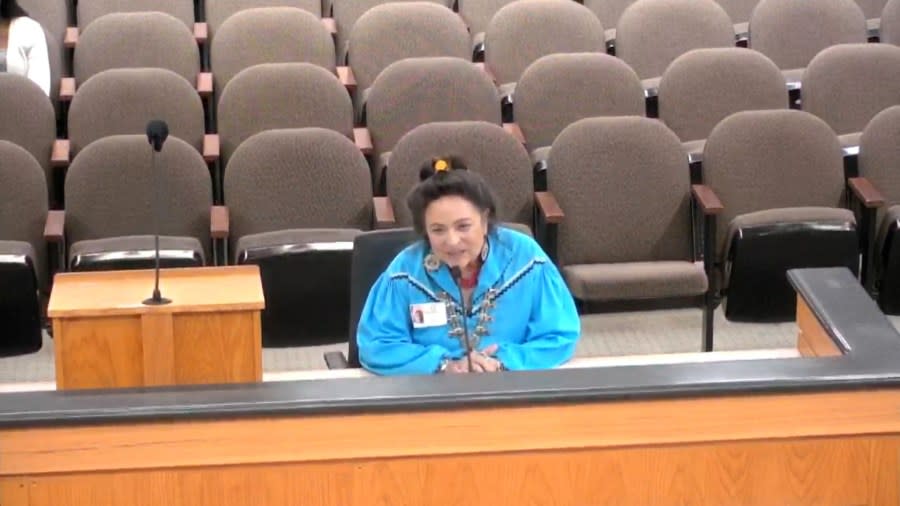 Last month, the Caddo Parish Commission unanimously passed a resolution supporting the federal recognition of the Adai Caddo Indian Nation. Vice Chief Debbie Garrett spoke at the meeting sharing the tribe’s history and pivotal role in the establishment of Louisiana and Texas. "When the early colonists called for help, we were there," Garrett stated. "Federal recognition is about recognition for our ancestors but also for our people today − it will help them learn about our culture, our history, and our language," These are the benefits that recognition could bring us, not just the desperately needed healthcare for our elders but the education for all our people, and to me that's the most important." The Shreveport Times, Shreveport Bossier Advocate, and KTAL News provided coverage of Commissioner Ron Cothran's Resolution 31. The Caddo Commission shared the livestream of the meeting.
Last month, the Caddo Parish Commission unanimously passed a resolution supporting the federal recognition of the Adai Caddo Indian Nation. Vice Chief Debbie Garrett spoke at the meeting sharing the tribe’s history and pivotal role in the establishment of Louisiana and Texas. "When the early colonists called for help, we were there," Garrett stated. "Federal recognition is about recognition for our ancestors but also for our people today − it will help them learn about our culture, our history, and our language," These are the benefits that recognition could bring us, not just the desperately needed healthcare for our elders but the education for all our people, and to me that's the most important." The Shreveport Times, Shreveport Bossier Advocate, and KTAL News provided coverage of Commissioner Ron Cothran's Resolution 31. The Caddo Commission shared the livestream of the meeting.
Leading up to the commission’s vote, 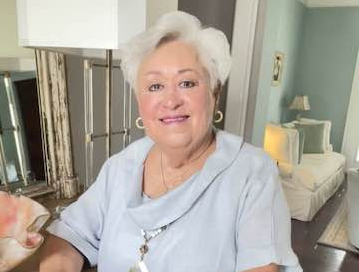 KTBS and the Longview News Journal interviewed the tribe’s historian and certified genealogist, Dee Niette Thompson who shared their ongoing, decades’ long process of federal recognition with the Bureau of Indian Affairs. Thompson stated, “In the past, the Spanish, French, and colonial governments all recognized the Adai Caddo as an Indian Nation since the 1700s.” Despite centuries of recognition as a sovereign Indian nation, the Bureau of Indian Affairs has yet to officially approve the tribe’s petition or provide a reason for its inaction.
KTBS and the Longview News Journal interviewed the tribe’s historian and certified genealogist, Dee Niette Thompson who shared their ongoing, decades’ long process of federal recognition with the Bureau of Indian Affairs. Thompson stated, “In the past, the Spanish, French, and colonial governments all recognized the Adai Caddo as an Indian Nation since the 1700s.” Despite centuries of recognition as a sovereign Indian nation, the Bureau of Indian Affairs has yet to officially approve the tribe’s petition or provide a reason for its inaction.
The following week, Tribal Councilman, Robert Brevelle was a featured guest on Native America Calling, a live national radio program linking over 52 radio stations together on issues specific to Native communities. Native America Calling has been on the air for over 30 years. The Monday - Friday daily radio program is FM broadcast across the United States and Canada. In podcast format, it has over 500,000 online listeners.
Brevelle stated, “No tribe in Louisiana (or the rest of the country) has a documented history that predates the Adai Caddo as it was among the first tribes met by conquistador Cabeza de Vaca, the first European explorer to step foot in the present-day United States. The Adai Caddo are one of the Louisiana and Texas colonies’ original allies, longest serving ally, and was repeatedly recognized as a nation for hundreds of years. The French and the Spanish governments that claimed Louisiana always documented, traded, and established formal military alliances with the Adai Caddo as an Indian nation. President Thomas Jefferson of the newly formed United States agreed to honor the Indian treaties in the Louisiana Purchase of 1803. Over 200 years later, the Adai Caddo are still waiting for federal recognition.” Brevelle is a Louisiana Certified Genealogist and fellow of the Louisiana Genealogy and Historical Society.
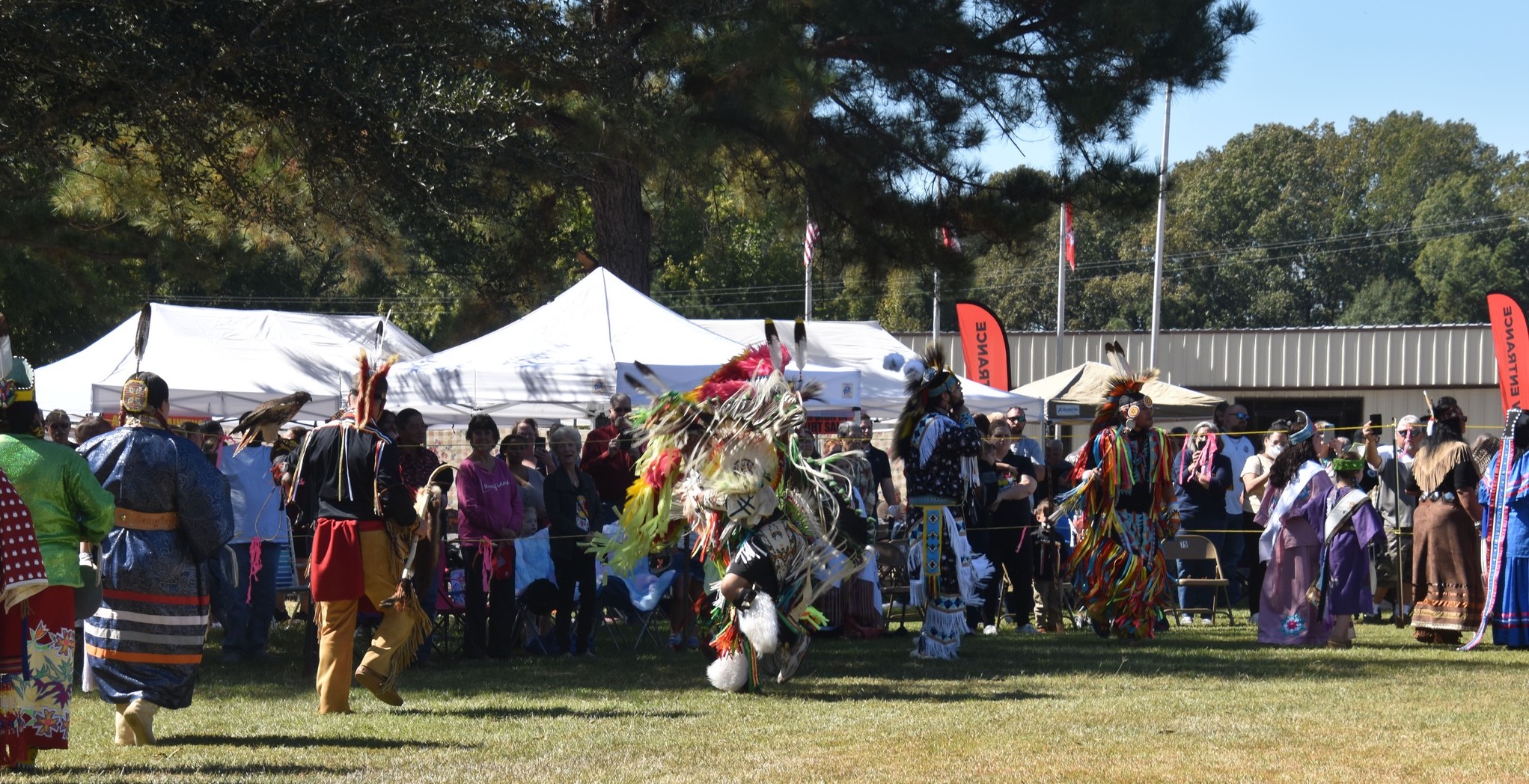 Explorer Cabeza de Vaca followed by the who’s who of Louisiana history including Bienville (“Father of Louisiana”), De Tonti (“Father of Arkansas”), La Harpe, and St. Denis all documented their meetings with the Adai Caddo. The oldest settlement in Louisiana is Natchitoches. Its founder, St. Denis worked closely with the Adai Caddo, which had villages to the east and north of Natchitoches. The Adai Caddo were regularly called upon to rescue Louisiana colonists and to protect them from other Indians. One of the nearby Adai Caddo villages was Los Adaes, the capital of the Spanish province of Texas for over 40 years. That’s right, the first capital of Texas is located in present-day Louisiana and named for the Adai Caddo. Many of the original French soldiers stationed at nearby Fort St. Jean Baptiste des Natchitoches married women from Los Adaes and from other Indian villages. Their offspring formed the first Creole community.
Explorer Cabeza de Vaca followed by the who’s who of Louisiana history including Bienville (“Father of Louisiana”), De Tonti (“Father of Arkansas”), La Harpe, and St. Denis all documented their meetings with the Adai Caddo. The oldest settlement in Louisiana is Natchitoches. Its founder, St. Denis worked closely with the Adai Caddo, which had villages to the east and north of Natchitoches. The Adai Caddo were regularly called upon to rescue Louisiana colonists and to protect them from other Indians. One of the nearby Adai Caddo villages was Los Adaes, the capital of the Spanish province of Texas for over 40 years. That’s right, the first capital of Texas is located in present-day Louisiana and named for the Adai Caddo. Many of the original French soldiers stationed at nearby Fort St. Jean Baptiste des Natchitoches married women from Los Adaes and from other Indian villages. Their offspring formed the first Creole community.
Brevelle is a direct lineal descendant of one such marriage. In 1718, a French marine arrived in the Louisiana colony from Paris, and he later married an Indian woman at Natchitoches. Post commandant, St. Denis approved their marriage. Brevelle’s marriage and the baptisms of their metis French-Indian Creole children are documented as some of the first entries in the oldest Catholic register in Louisiana.
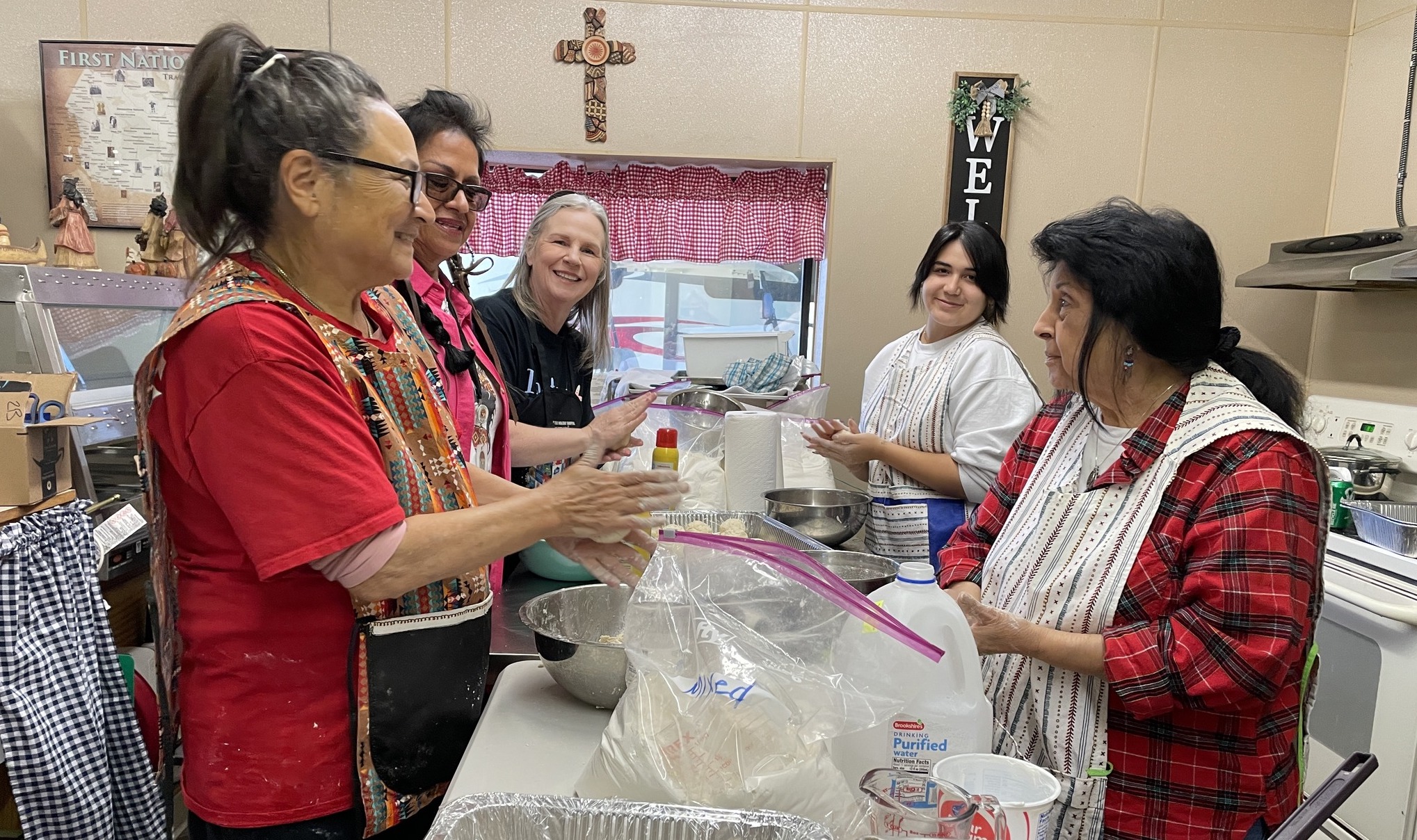 The Adai Caddo had villages near the present-day communities of Evelyn, Robeline, Spanish Lake, Pendleton, and in Kisatchie National Forest. Several of the villages were along the El Camino Real, an ancient Indian and buffalo trail. The Sabine River for decades was previously named the Rio de los Adiais by the French, Spanish, Portuguese, and British governments. Other geographic features and communities are named for the Adai Caddo tribe and its people such as a Bayou Adois, Adai Burial Bayou, Anne des Cadeaux Bayou, Los Adaes State Park, Bayou Brevelle, Chief Quemsy Branch, Los Adais Road, and the communities of Adois, La Laguna de los Adaes (today known as Spanish Lake), and Isle Brevelle. The latter is internationally known as the birthplace of Creole culture and home to the Cane River Creole National Historical Park of the National Park Service.
The Adai Caddo had villages near the present-day communities of Evelyn, Robeline, Spanish Lake, Pendleton, and in Kisatchie National Forest. Several of the villages were along the El Camino Real, an ancient Indian and buffalo trail. The Sabine River for decades was previously named the Rio de los Adiais by the French, Spanish, Portuguese, and British governments. Other geographic features and communities are named for the Adai Caddo tribe and its people such as a Bayou Adois, Adai Burial Bayou, Anne des Cadeaux Bayou, Los Adaes State Park, Bayou Brevelle, Chief Quemsy Branch, Los Adais Road, and the communities of Adois, La Laguna de los Adaes (today known as Spanish Lake), and Isle Brevelle. The latter is internationally known as the birthplace of Creole culture and home to the Cane River Creole National Historical Park of the National Park Service.
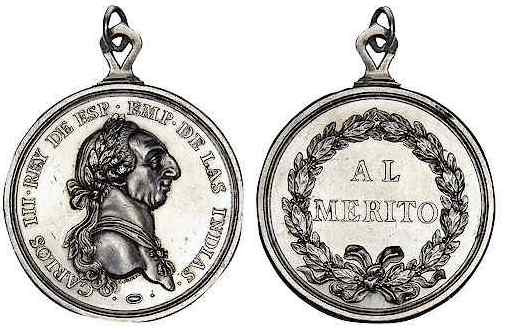 The Adai Caddo are the only Indian tribe listed on French, Spanish, and British treaty maps in the region today known as Sabine, Desoto, Vernon, and Natchitoches Parish. Their chief was the only recognized Indian leader for this region. In keeping with colonial trade practices of the period, European kings would have medals struck and presented to the ruling chief of the Indian nation. The only Indian nation in this region to receive this recognition for the entire duration of the French and Spanish colonial period was the Adai Caddo. The Adai Caddo had the only "medal chief." As such, the Adai Caddo assumed they were a recognized Indian nation and operated as such until the 20th century, when they learned of the Bureau of Indian Affairs. Under this new process, the tribe would have to apply to be recognized. The tribe applied in 1993, petitioner #138. After 30 years, they are still waiting to be re-recognized as an Indian nation.
The Adai Caddo are the only Indian tribe listed on French, Spanish, and British treaty maps in the region today known as Sabine, Desoto, Vernon, and Natchitoches Parish. Their chief was the only recognized Indian leader for this region. In keeping with colonial trade practices of the period, European kings would have medals struck and presented to the ruling chief of the Indian nation. The only Indian nation in this region to receive this recognition for the entire duration of the French and Spanish colonial period was the Adai Caddo. The Adai Caddo had the only "medal chief." As such, the Adai Caddo assumed they were a recognized Indian nation and operated as such until the 20th century, when they learned of the Bureau of Indian Affairs. Under this new process, the tribe would have to apply to be recognized. The tribe applied in 1993, petitioner #138. After 30 years, they are still waiting to be re-recognized as an Indian nation.
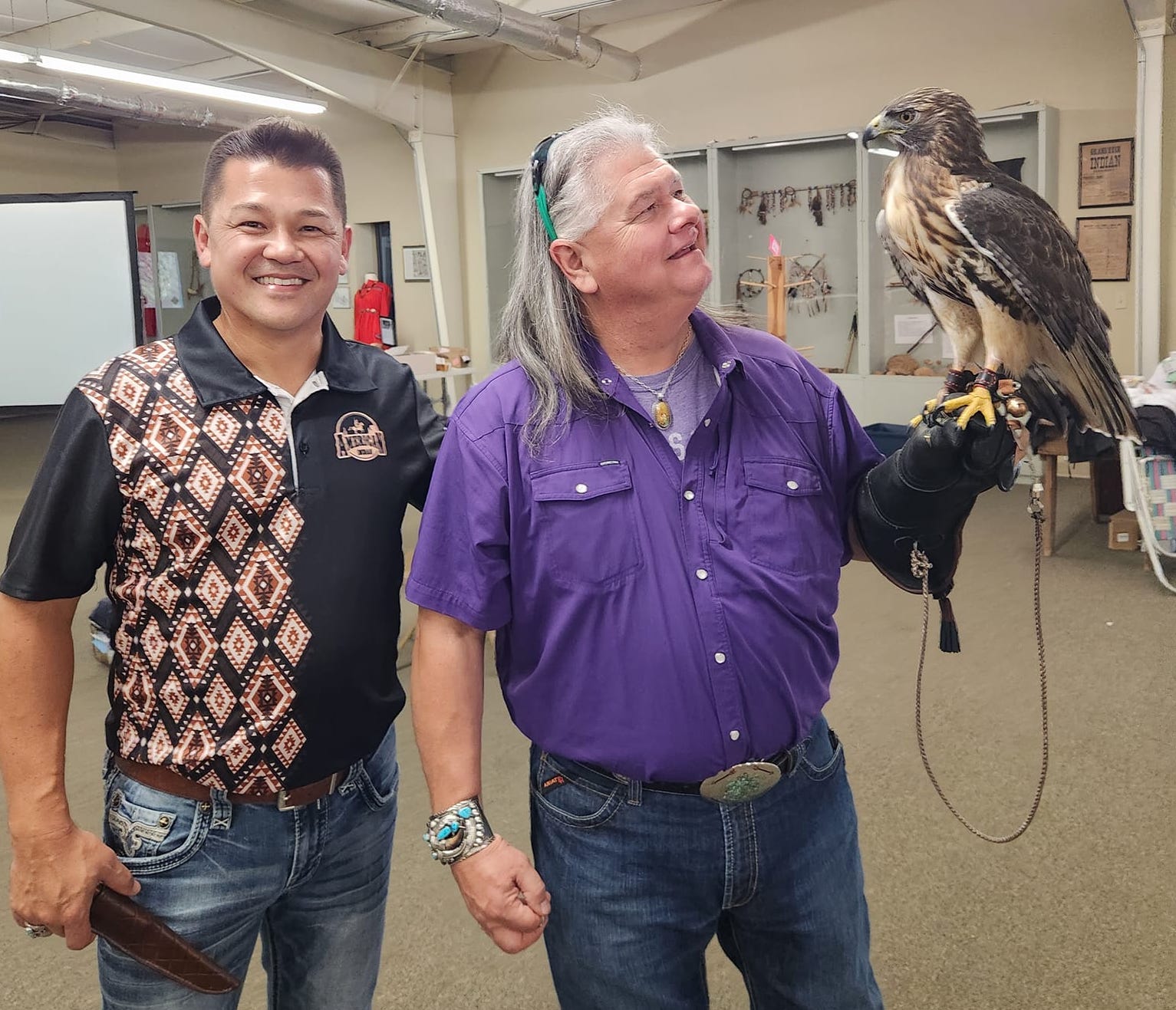 “Dignitaries from the Spanish and French governments including consulates continue to visit the Adai Caddo Nation,” said Brevelle. “They graciously present us with proclamations and other ceremonial gifts in honor of the centuries of peace and collaboration with their colonies. They recognize our sovereignty, as does the State of Louisiana but yet, the United States, the country we helped establish, fight for in the Revolutionary War and every war since, does not recognize the Adai Caddo Indian Nation.”
“Dignitaries from the Spanish and French governments including consulates continue to visit the Adai Caddo Nation,” said Brevelle. “They graciously present us with proclamations and other ceremonial gifts in honor of the centuries of peace and collaboration with their colonies. They recognize our sovereignty, as does the State of Louisiana but yet, the United States, the country we helped establish, fight for in the Revolutionary War and every war since, does not recognize the Adai Caddo Indian Nation.”
“The colonial governments and the United States treated and called us a nation for centuries when they wanted something from us,” said John Mark Davis, Chief of the Adai Caddo Indian Nation. “When they needed our land, our medicine, or our food, we were a nation. When they needed our warriors to protect them or to fight alongside them in wars including the American Revolution, we were a nation. When they wrote about us in their memoirs, maps, and in official government correspondence, they wrote we are a nation. Now that we have little left to take, we are no longer treated as a nation.”
The Adai Caddo are credited with being the first Louisiana tribe met by the first European conquistador and explorer; host of the first Catholic mission in Louisiana; host of the first capital of Texas; helped establish the oldest towns in Louisiana and Texas (Natchitoches and Nacogdoches); fought in the successful Galvez Expedition of the American Revolution which led to the creation of the United States; fought and helped save New Orleans in the War of 1812; and rescued the famous explorer La Harpe (founder of the first European settlement in North Texas). The tribe has an astonishing military record. Of its current members, 25% of the men have previously or are currently serving in the military. That national average is 6%.
“The State of Louisiana, Louisiana State University, Louisiana Genealogical and Historical Society, Catholic Church, Caddo Parish, France, Spain, and the colonial governments of Louisiana, Texas, and Mexico have all recognized the Adai Caddo as an Indian Nation,” said Brevelle. “But the nation we helped create and continue to protect through centuries of unwavering military service and civic duty, has yet to recognize us.”
“We pray that our local congressman, Speaker of the House Mike Johnson, will honor us by proposing legislation to federally recognize our tribe,” said Thompson.
The Adai Caddo Indian Nation will host its annual powwow on October 18, 2025 at its tribal grounds in Robeline, Louisiana. The powwow is open to public and free of charge. Native and local food, crafts, and other vendors will be on-site.
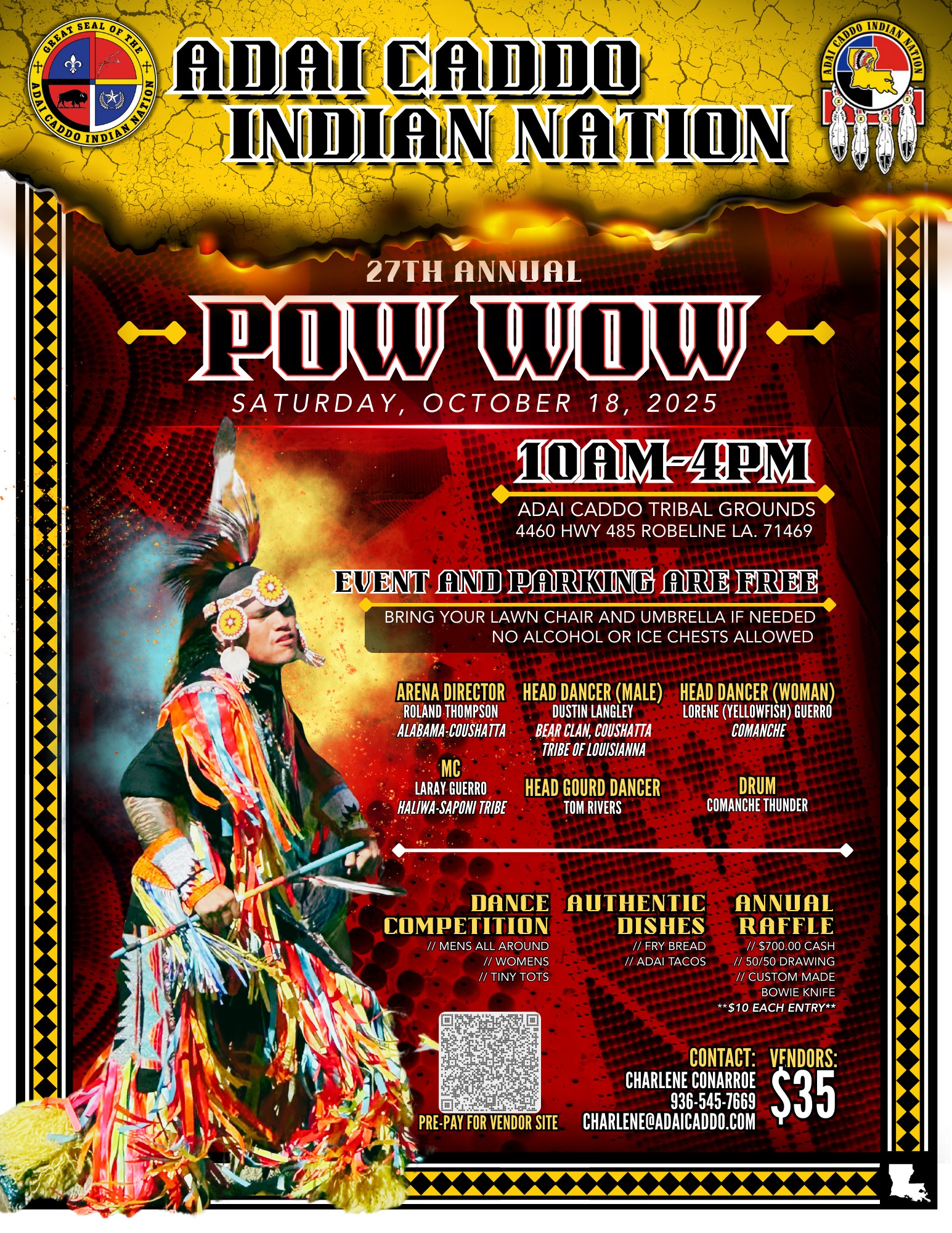
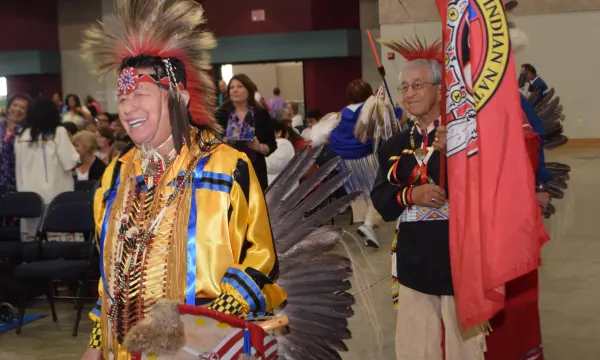
| Contact Email | [email protected] |
| Issued By | Adai Caddo Indian Nation |
| Website | Adai Caddo Indian Nation |
| Phone | 409-365-6711 |
| Business Address | 4460 LA-485 Robeline, LA 71469 |
| Country | United States |
| Categories | Government , Politics , Society |
| Last Updated | June 6, 2025 |


